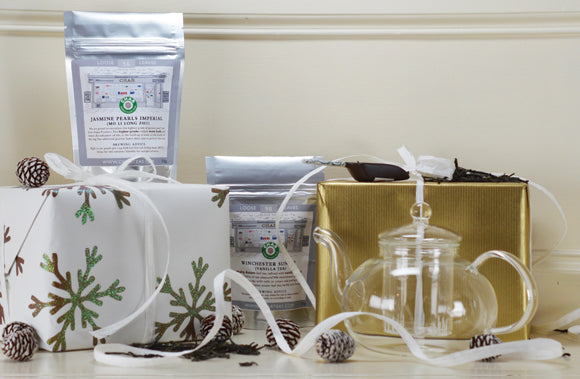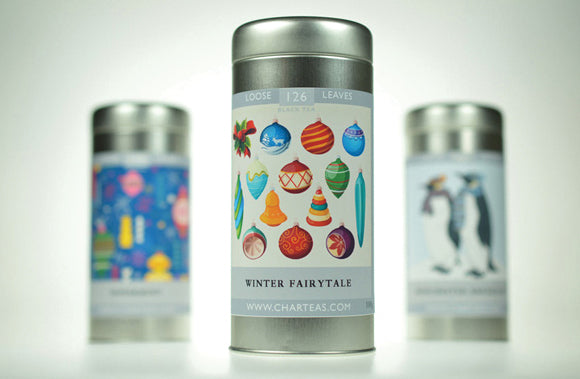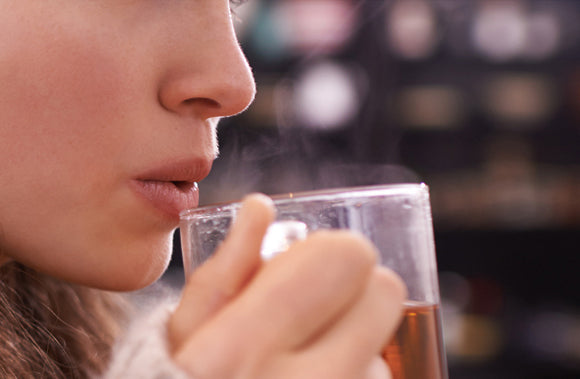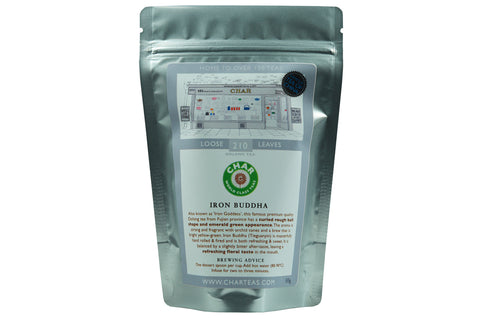China's Finest Teas: Iron Buddha
Known by many names including Iron Goddess of Mercy, Iron Bodhisattva, Tie Guan Yin, and of course Iron Buddha, this oolong tea has captured the hearts of many tea enthusiasts over the long years. Let's explore this famous tea of China from the very first sip to our little tea shop in Winchester!
Originally from the Anxi region, the creation of this tea is surrounded by legend.
One of these legends involves a poor tea farmer who tended to a Guanyin temple (a genderless Buddhist god of compassion) which he passed on his way to the tea fields. One night, after hours of toil setting the temple to a worthy state, this nameless farmer was graced with a dream. In this dream, Guanyin appeared to him, guiding him to a single tea plant shoot which had taken root in a cave behind the temple. Inspired upon waking, the farmer went to the temple, where indeed there was a cave. He found this tea shoot and replanted and nurtured it as devotedly as he had nurtured the temple. The tea shoot became a strong tea bush, which produced a tea unlike any other. The farmer named this tea Tie Guan Yin, after the god that had inspired the journey, and shared the tea widely and gladly, embodying the kind nature that he knew would please its namesake.
A different legend follows a scholar who, while walking, noticed a peculiar thing: there appeared to be a tea plant which was surviving in spite of being mostly strangled by a Guanyin rock carving. The scholar removed the tea shoot, tended it, and when tea was produced from it, the scholar presented it to the Emperor. The Emperor was immediately impressed by the tea, and more so when he heard the story of its origin, and declared it had "The weight of iron and appearance of Guan Yin", thereby giving it the name we still use today in Char: Iron Buddha.
What is the taste that impressed the Emperor so, that was worthy of having a god for a namesake? Find out for yourself with a pouch of our Iron Buddha. Click on the image below to find out more!

 Assam
Assam
 Black
Black
 Breakfast
Breakfast
 Caffeine Free
Caffeine Free
 Ceylon
Ceylon
 Cold Brew
Cold Brew
 Darjeeling
Darjeeling
 Decaffeinated
Decaffeinated
 Earl Grey
Earl Grey
 Favourites
Favourites
 Flavoured
Flavoured
 Flowering
Flowering
 Fruit
Fruit
 Green
Green
 Herbal
Herbal
 Jasmine
Jasmine
 Mate
Mate
 Oolong
Oolong
 Organic
Organic
 Pu Erh
Pu Erh
 Rooibos
Rooibos
 Scented
Scented
 Smoked
Smoked
 Sparkling
Sparkling
 White
White
 Winchester
Winchester
 Loose Tea
Loose Tea
 Tea Bags
Tea Bags
 Gift Caddies
Gift Caddies
 Teapots
Teapots
 Accessories
Accessories
 Tea Tins
Tea Tins
 Storage
Storage



